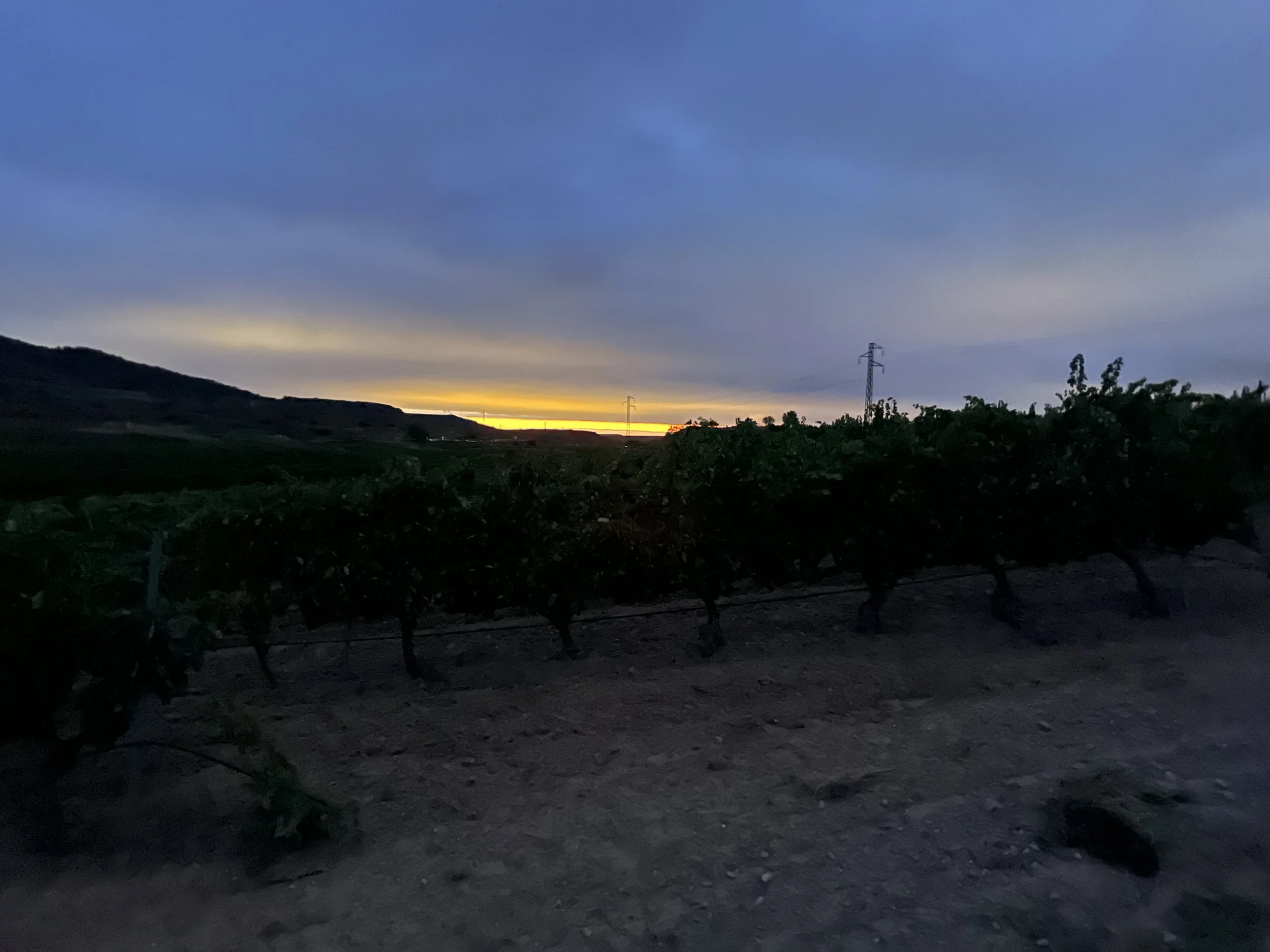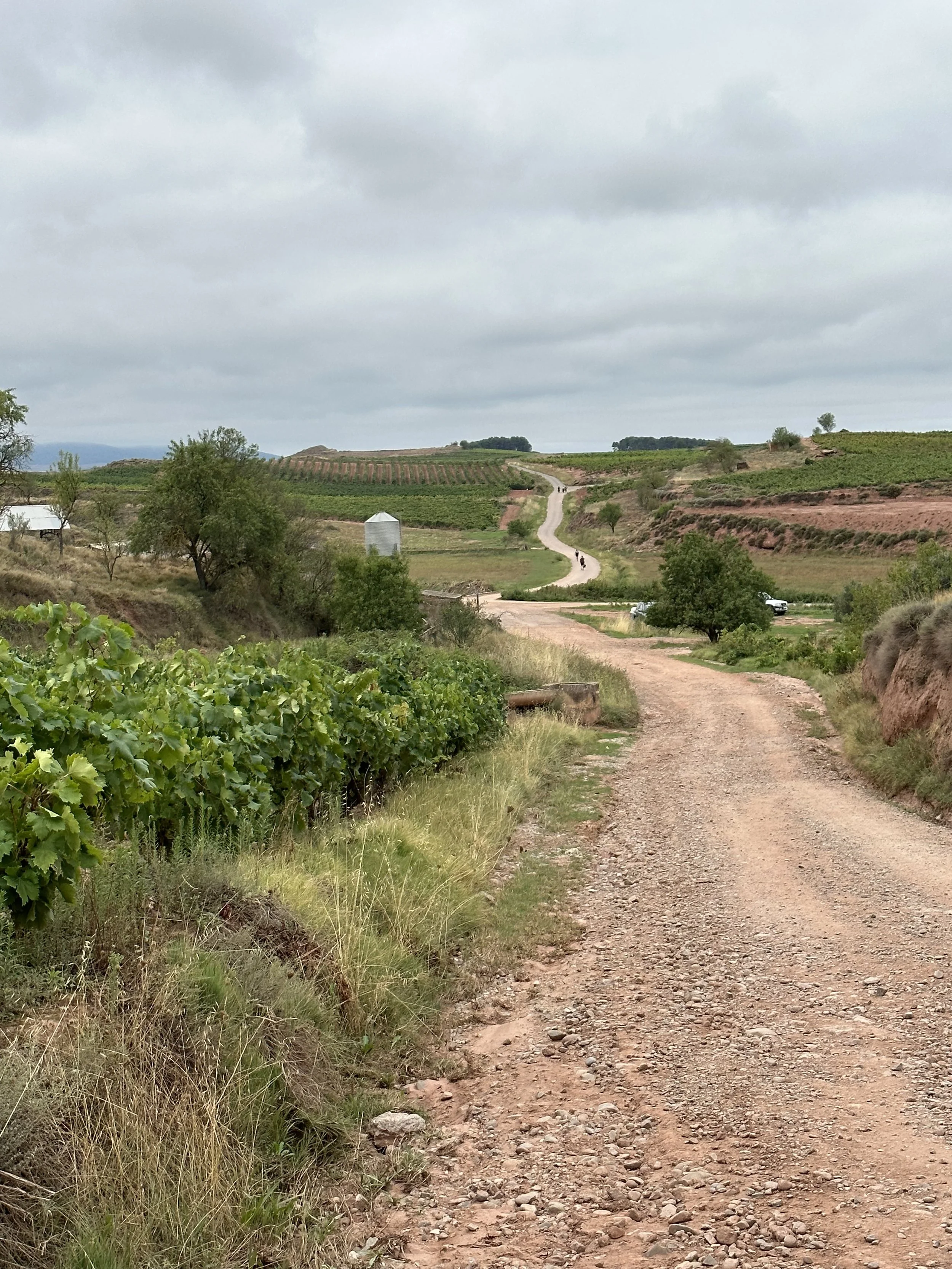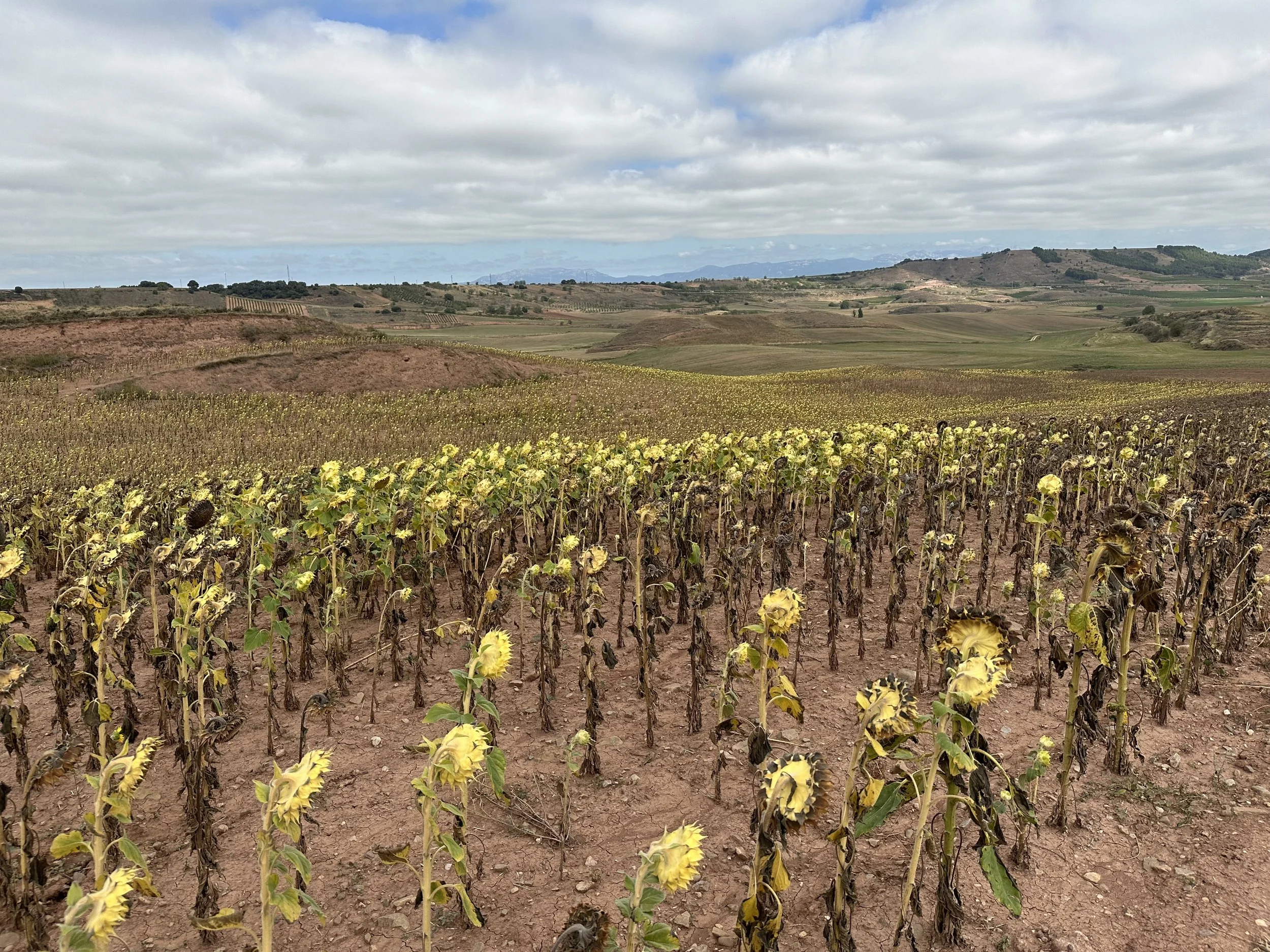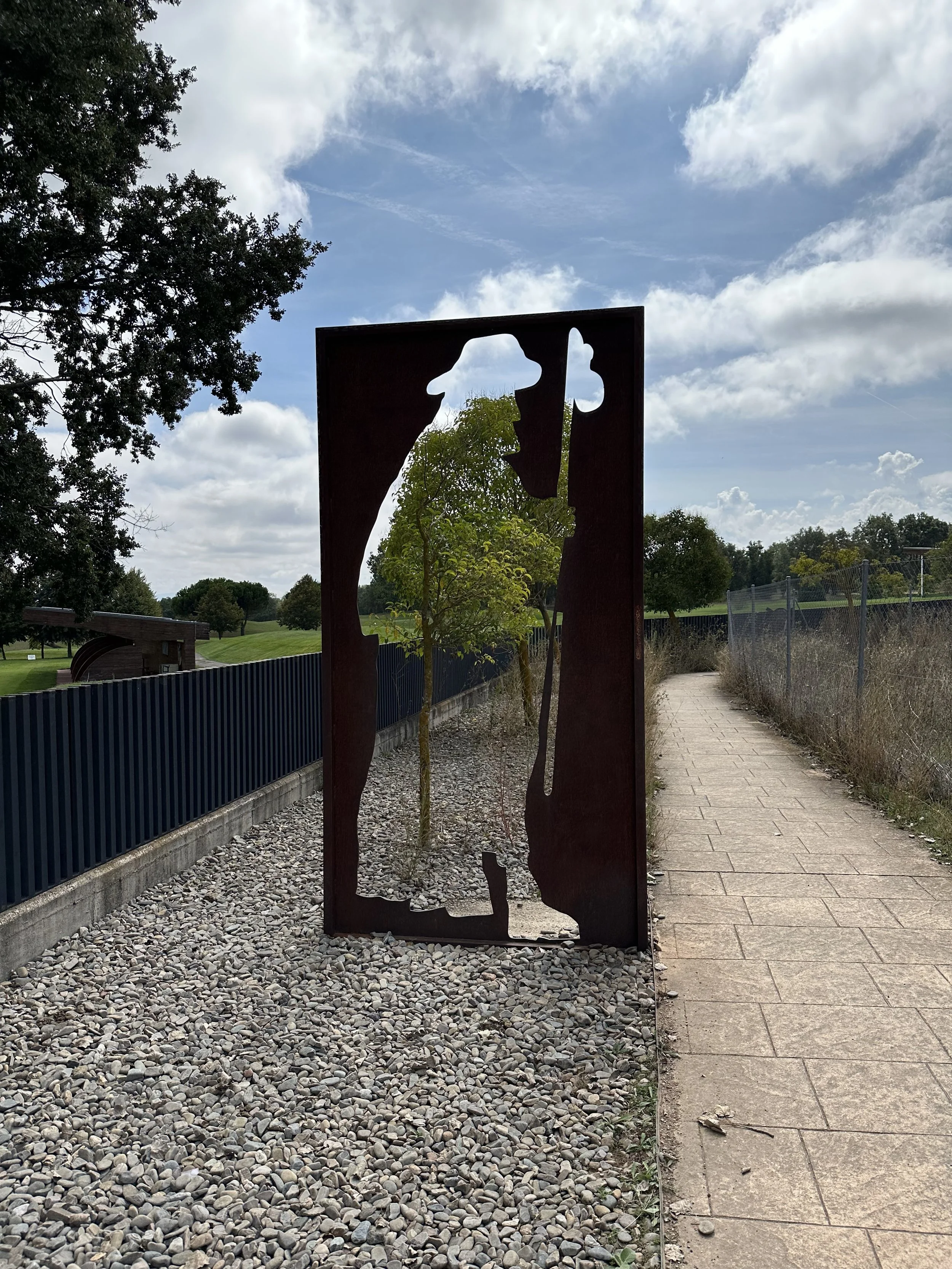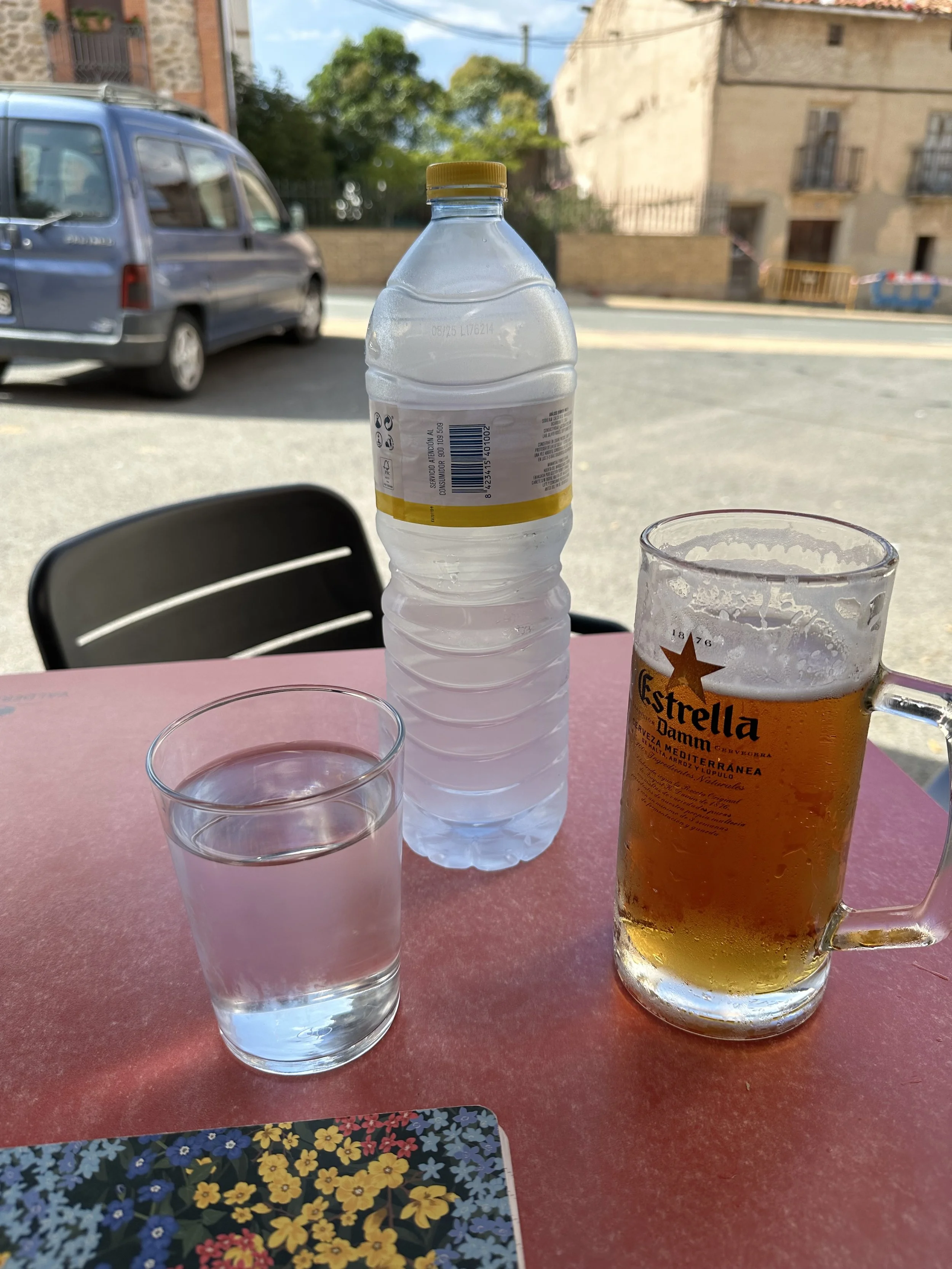Whispers from the Camino—Day 10
September 14. Ventosa to Ciruena. 24.9 km.
I have been doing pilgrimages for over a decade and one of things I know about them is that they almost always occur because at a threshold moment of one’s life.
Leaving Ventosa at sunrise
I wouldn’t call what happened on this day a definite threshold, but it had all the signs of a significant shift in the lens through which I look at the world. If I was going to cross a threshold sometime on this Camino, I was sure this day was part of the recipe.
I was barely into the walk when I rediscovered the language of “embodied spirituality,” a term that I first heard from a dear colleague of mine as I came to the final miles of my first pilgrimage (captured in my book Alone: A 4,000 Mile Search for Belonging). I was reflecting on the stark difference between the world of church where I served professionally as a pastor and regional executive and the experience of being out among the elements of the earth, whether through walking this Camino, cycling through the American West, snowshoeing in the Cascades or kayaking on the Willamette River.
Lots of open road for reflection
I was struck by how much more connected I felt to the Sacred (or to God) with my feet firmly planted on the earth, my lungs contracting and expanding with each aerobic breath, with the wind blowing my hair around and the sun caressing my face. It would be easy to dismiss a 500-mile walk as an extreme form of exercise, but for me the catalyst for a walk like this is not exercise; it is connection to something deeper:
A spirituality. An embodied spirituality.
Before I left I had a curious person ask me, “Why do you have to go on a pilgrimage to find God?” I just smiled at the person knowing that the answer was more than he wanted. But this morning I found myself thinking about the question. I realized the question was based in an assumption about our status quo lives and culture. I found myself mirroring the question back to him in my mind: “Why do you have to sit in a pew in order to find God?” It felt so good to turn is question around and see that it was just as ridiculous for him to think that God could be found in a pew in a church as me finding the Sacred out on the trail.
I will admit that I have loved serving the Church. It fits my personality, my gifts, and my passions really well. Whether singing an Easter hymn or sitting around a potluck table sharing stories, or singing at the bedside of a dying member, I find deep delight in the church. But here is the thing. We church people are largely sedentary. We sit in pews, we make decisions around boardroom tables, we eat wonderfully tasty meals sitting on our butts, and drive to meetings sitting in our cars in order to sit around a table to discuss church business.
I am always amazed when I shift my church world to shopping at REI. The people literally look different. Bodies are different. It is a different world.
Personally, I don’t think all this sitting on our butts is healthy for anyone. But I know for sure it isn’t healthy for me. It was a regular ritual for me to get out of the church office as soon as I could many days so I could put a quick 20 miles on the bike or swim a mile in the pool, or take an hour-long walk. My body craves motion and attention.
My friend and colleague called this an “embodied spirituality,” that is, a spirituality that is lived through movement and the engagement of the senses. Seriously, this shouldn’t be a radical concept in the Church. Our Christmas tradition honors the “incarnation of God” which literally means “God in the flesh.” I am not sure why a religious tradition that honors the incarnation is as sedentary as it is. But a lot of theology and beliefs are worked out in our minds and maybe we fell in love with theology so much that we forgot about our basic biology.
I was trying to put my finger on the emotion behind this internal dialogue I was having while walking. I could feel a sadness in my heart and gut. I realized it was grief. I was sad for the Church and I was sad for myself. I was sad because (and this might sound arrogant) I felt like my pilgrimages and my wilderness quest was not some personal hobby outside of the church. It felt like it was my way of living more deeply into our religious tradition. I was grieving because I felt like I had a gift to offer the church, but instead was feeling brushed aside.
And then I realized that I had a dream the night before that probably prompted all this. I won’t go into all of the details but characters of my former position as a regional church executive showed up in my dream. At the core of the dream was the question, “Had I abandoned the presbytery (a region of churches) when things got dicey or had I simply allowed the presbytery to find the leadership that was a better fit for them?” I am sure the dream jarred loose all of these feelings about the contrast between my professional religious life and the “embodied spirituality” that seemed to call to me on the trail or the road.
The afternoon ritual—water, beer and journal
I spent most of day thinking and musing about why these worldviews seemed so separate. It didn’t make sense to me and I could feel the grief of having spent a whole professional life wanting to integrate these two worlds, but being reminded over and over again that church people belong in the church and trail people belong on the trail. I don’t want this to be true, but my experience eventually convinced me that I would need to keep the two separate for my own sanity.
And then…another breakthrough. I suddenly found the language for what I was feeling. I no longer felt like a professional minister who occasionally took off on pilgrimages. I felt like a pilgrim who occasionally served the church. I wasn’t sure what this would mean. But I could feel that my true identity was rooted in the life of a pilgrim, always seeking, learning and discovering. If I needed to work as a minister I would.
I arrived at Ciruena feeling really good. No wonder there has been this decades’ long struggle. Maybe I have always been a pilgrim at heart, but didn’t have the words or wasn’t ready to admit it.
That night I brought my ukulele out and a song began to emerge.

